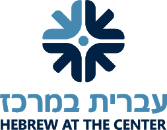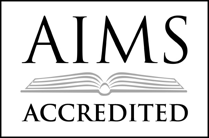Exploring Public Land Use: A Third Grade Election Project Update
October 13, 2016 by
Third Graders are focusing on public lands as an important issue for the upcoming election. Their study includes defining what public lands are, exploring how they should be used, and determining whose role it is to take care of them. The topic of public land use dovetails with the Third Grade curriculum which includes learning about land forms in the different regions of the United States and in the individual state that each student is assigned as part of the 50 States Project, as well as our national parks.
After students reflected on their own experiences with public lands – from national parks to national monuments – they began learning about some of the challenges related to public land use. They read articles that described environmental and financial pressures on our parks and explained different positions on the use of these lands. Following a visit by JPDS-NC parent Louise Milkman when they learned in greater detail about different kinds of public lands, a student noted, “Before I thought there was just one kind of public land, but she taught us there are others like water and Indian lands.” They also learned about competing demands for use of the lands. A Third Grader summed up what she had learned: “They have to even it out so both sides are happy because workers need jobs and the animals need their habitats.”
In addition, JPDS-NC Third Graders visited Fourth and Fifth graders at the Center City Public Charter School (CCPCS). JPDS-NC students introduced the CCPCS students to a thinking routine known as a chalk talk to help them think through their experiences with public lands, and contemplate who the public lands are for, who is responsible for them, and whether they should be preserved. Our students helped the CCPCS students sort through and categorize their responses. They then brought back the responses to further reflect on the views of their new acquaintances. (In addition, they taught the CCPCS students how to say “Shalom.”)
Now the Third Graders are starting the process of synthesizing all their learning, reflecting on what they gleaned from a variety of sources and determining which are the most important aspects of this issue. While working together to do this, one students observed, “We did a lot of good compromising.” Here are some of the statements they’ve generated about how their thinking has changed:
- A lot of different kinds of people take care of public lands because now we know there are many different kinds of public lands.
- Public parks need to be rescued because they are in danger and are not protected enough.
- The public uses the public land so they are the ones in charge.
- Some public lands aren’t always that public. Some have areas you can’t go to.
- If protection keeps declining, our kids, future generations, won’t know the joy of going to the national parks.
- They [the national parks and national monuments] are important parts of America and American history.
Throughout the process, students have been researching and forming more informed opinions, asking questions and voicing their opinions while listening to the positions of others, and reflecting on their learning. One student observed that she feels they are “still exploring” and could probably learn more: “We can get deep into the topic.” Another student opined that while adults might still be reluctant to listen to them, “now we know things they don’t.”






